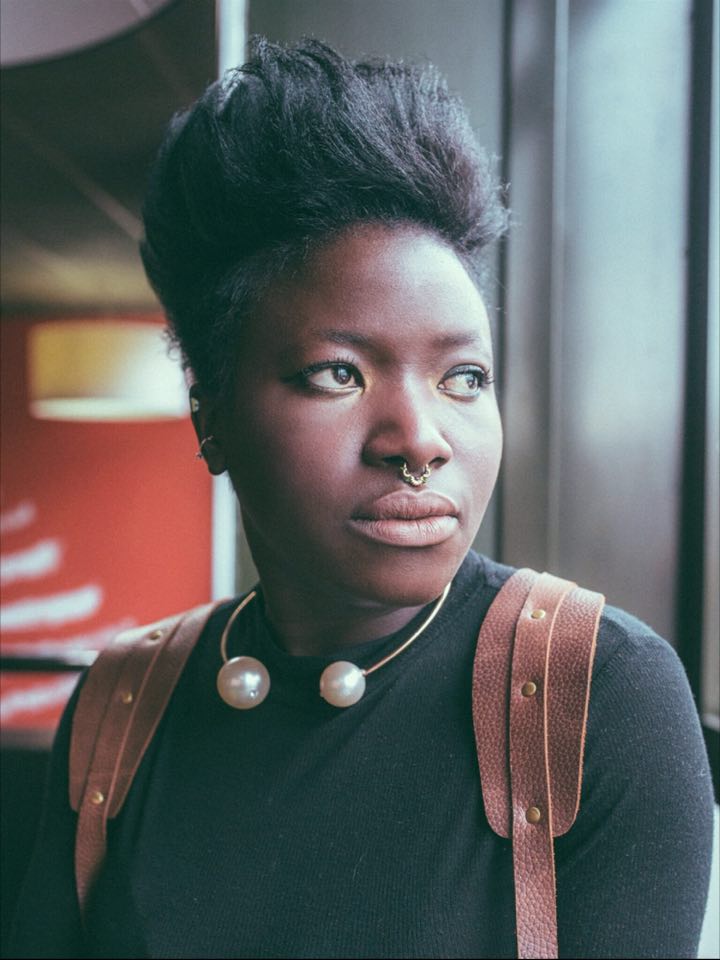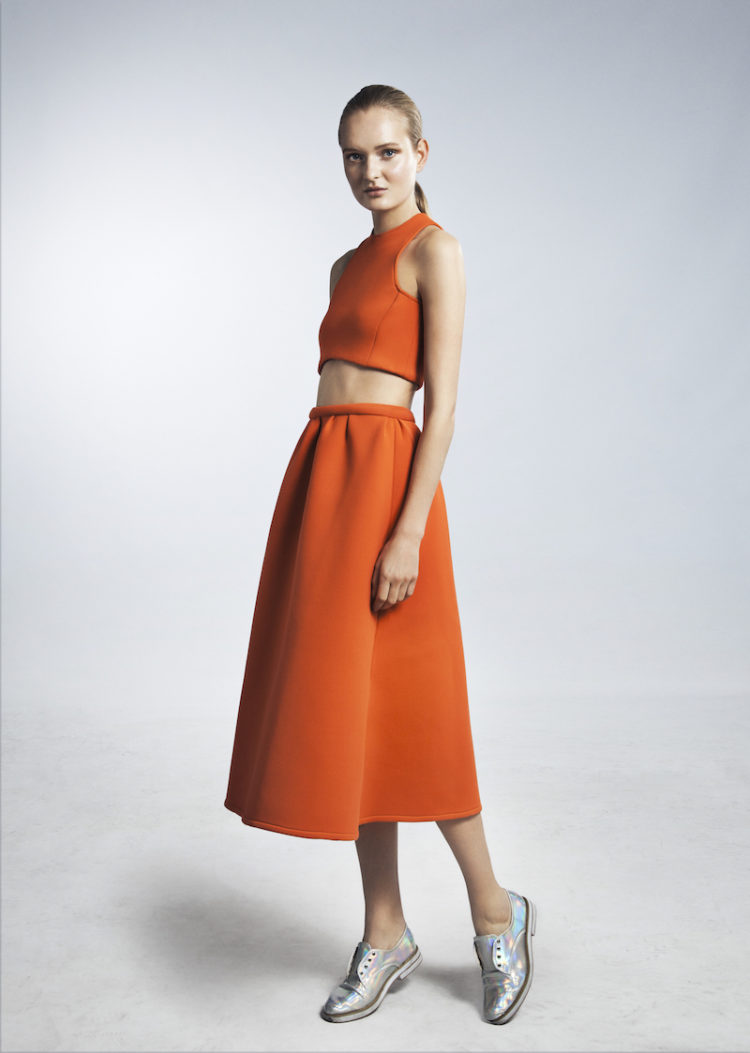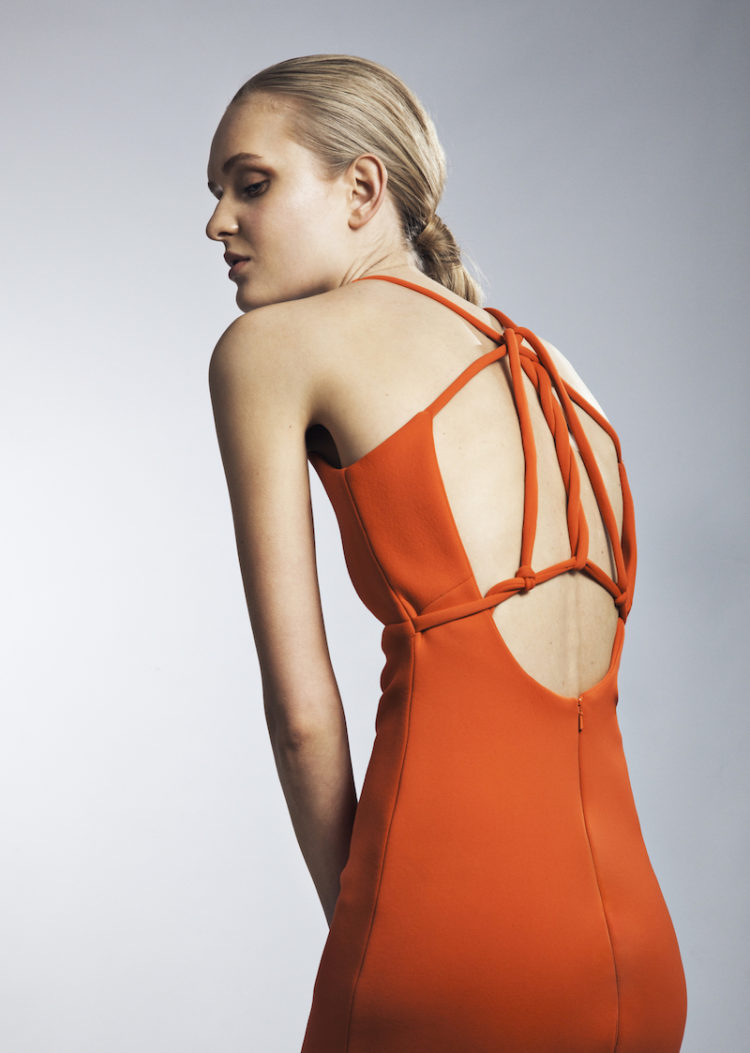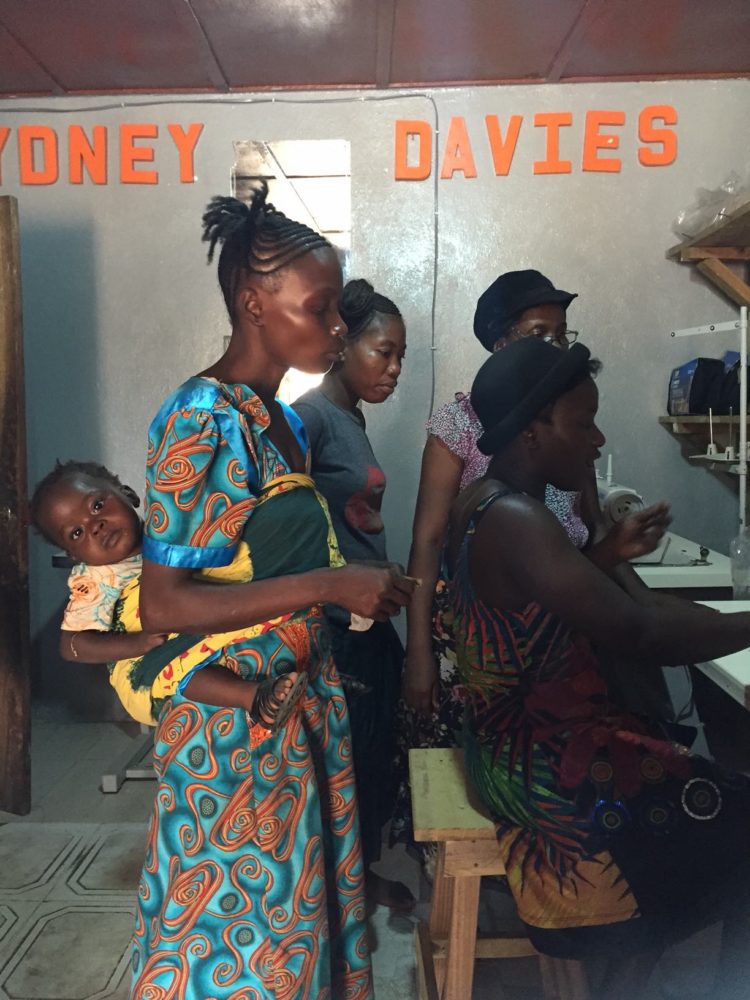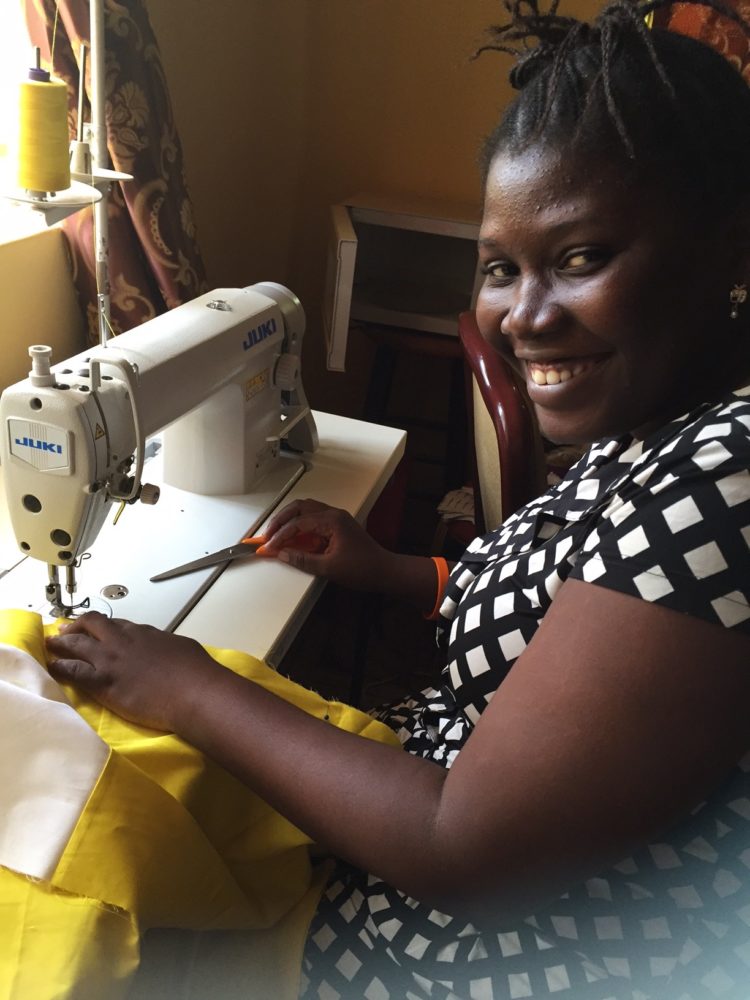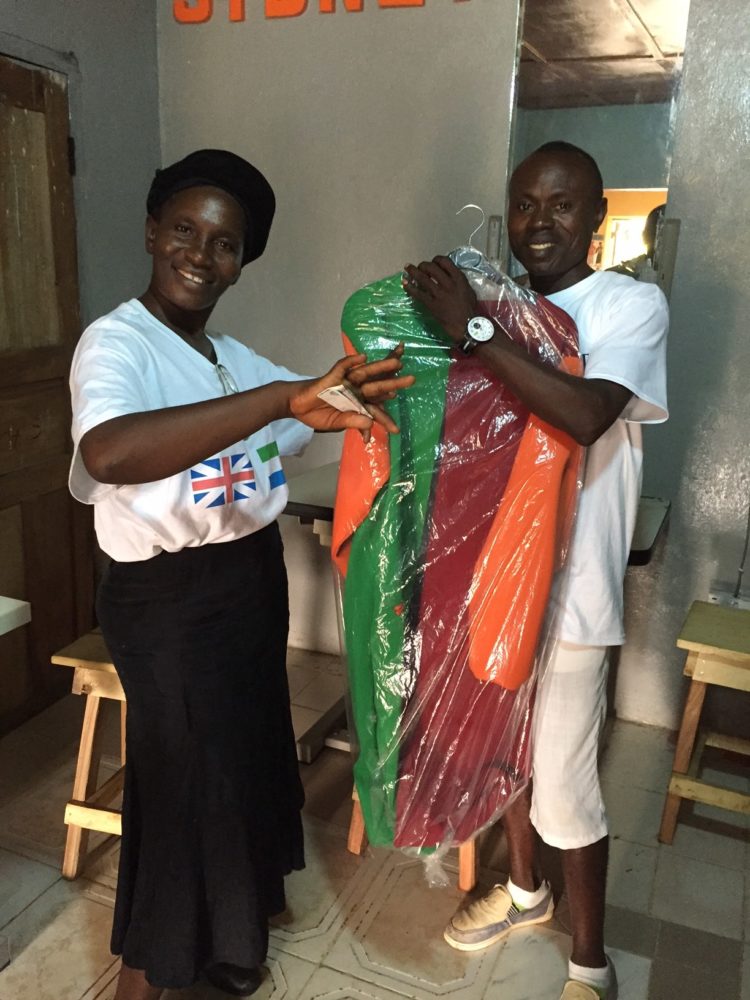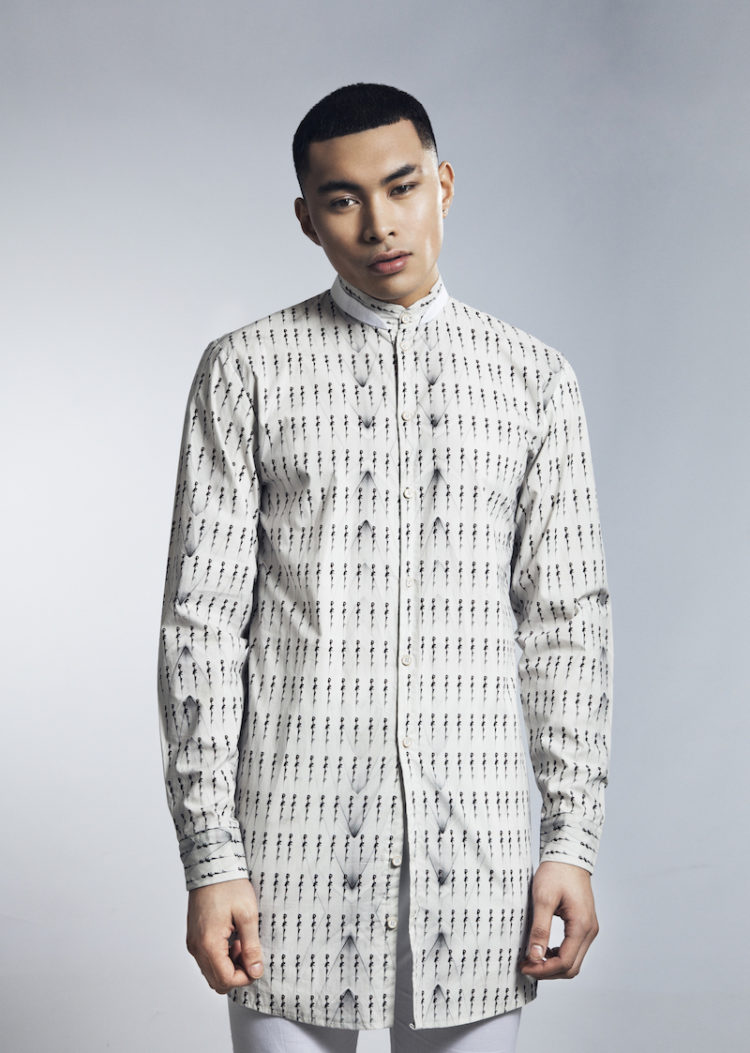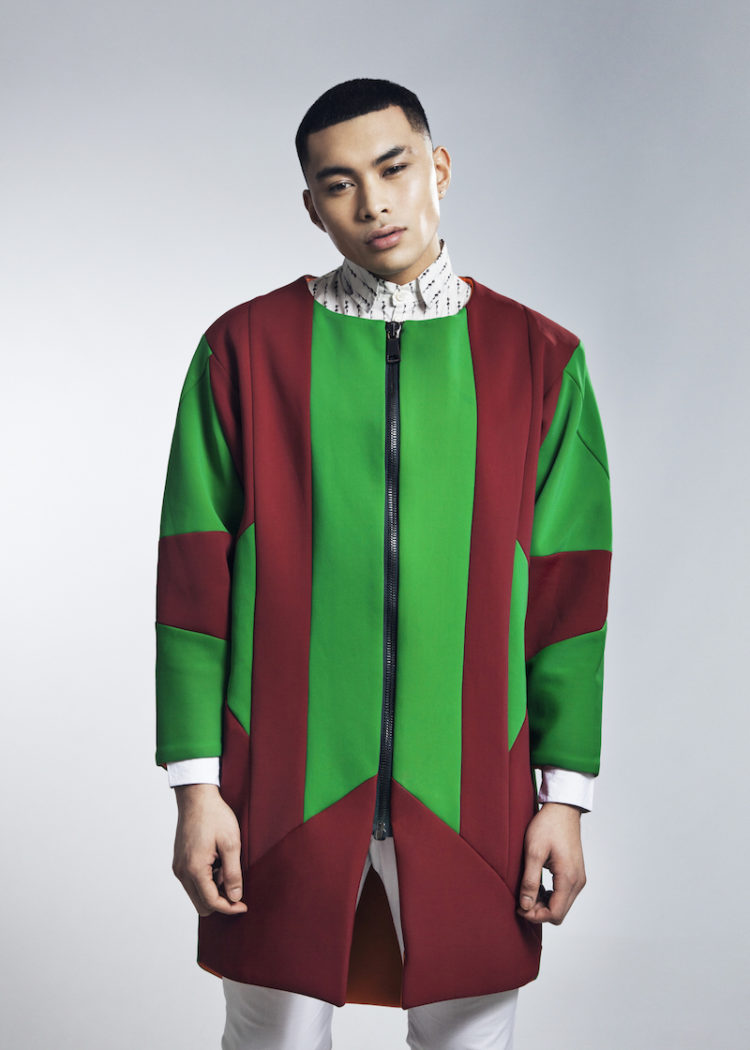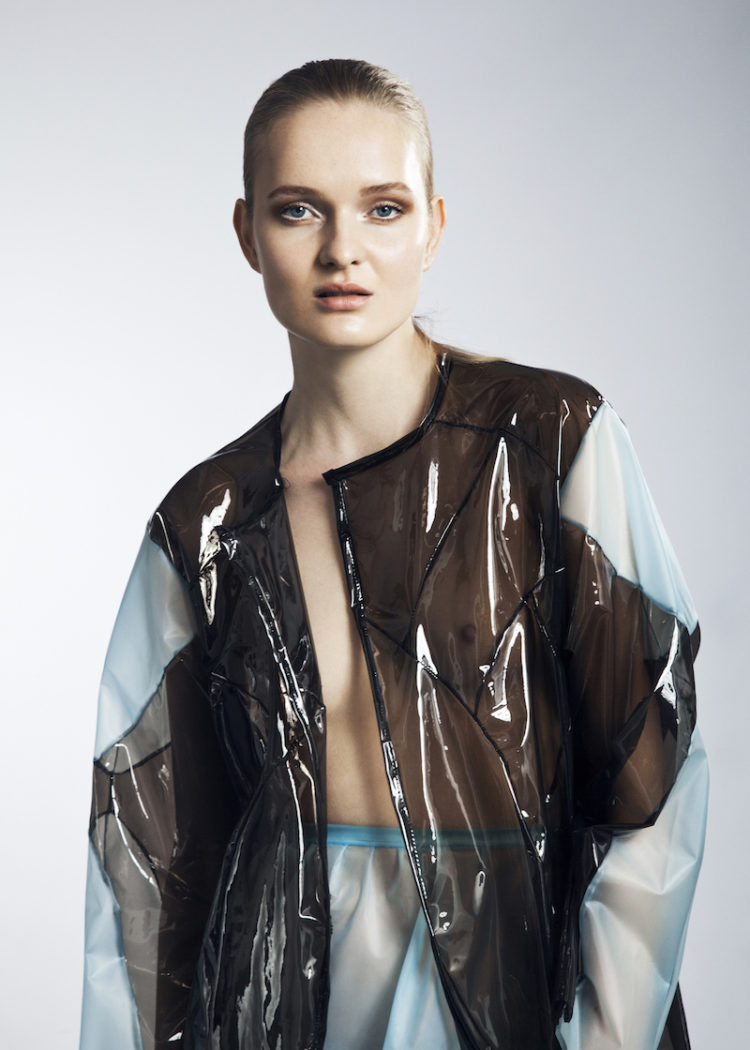We’ve all seen the labels on the inside of our t-shirts and trousers that state ‘Made in China’, and also from its South Asian neighbour, India. But ‘Made in Sierra Leone’ is far rarer. Euphemia Sydney Davies, the London-based designer behind the eponymous label Sydney Davies, wants to change that.
For Euphemia, the commitment to rebuild Sierra Leone from the effects of its decade-long civil war and recent Ebola epidemic, through fashion, is personal.
She was born in Sierra Leone. Her father died in the civil war when she was aged nine, causing her to relocate with her mother to Kenya. They then moved to the UK in 2000.
Ebola had a direct impact on her as well. Euphemia’s aunt, Dr Olivet Buck, was a prominent doctor whose death as a cause of the Ebola virus sparked international outcry. (In a controversial move, the World Health Organisation had denied the Sierra Leone government’s request to transfer Dr Buck out of Sierra Leone and to Germany for treatment, even though it had approved previous similar requests for foreign aid workers).
Prior to her death, Dr Buck, who also was a skilled seamstress herself, played a key role in establishing the Sydney Davies presence in Freetown. She had located studio space and recruited local talent for what became her niece’s international fashion house and a community advocate in post-Ebola Freetown.
The Sydney Davies brand is known for its crop tops, dresses, and uni-sex pieces made of semi-transparent plastic. These pieces caught my eye while I was browsing Instagram. After contacting Euphemia and learning about her personal story of resilience (she says fashion has provided a ‘source of joy and escapism’) and her brand’s mission, Sydney Davies became even more meaningful.
The negative stereotype persistently perpetuated by mainstream media of Africa as a whole was a big factor in my hunger to do more
In our exchange she told about her entrepreneurial journey and why young entrepreneurs should consider Africa first, why her label ‘doesn’t bear the stereotypical African look’, and future plans for Sydney Davies.
https://www.instagram.com/p/BSTbDPUAAB-/
When did you decide to start your own label?
I decided to start my own label in my mid-teens. I would chop up some of my clothing, customising them into pieces that my friends always wanted to steal.
Following my studies I felt I had too much to offer – my mind is very much out of the box and I knew I’d be able to fuse fashion and art to produce wearable yet unique and creative clothing. Therefore the idea of working for someone else whose vision isn’t mine and whose vision I would struggle to relate to was not an option.
https://www.instagram.com/p/BQnfLwkA62h/?taken-by=sydneydavieslondon
Some university lecturers discouraged me from taking up my own label but that went through one ear and straight out the next. I was so intensely passionate about an independent career in fashion that none of it scared me.
I can certainly now see why I was discouraged, because the creative industry is fantastically difficult.
How did the Ebola epidemic inspire you to begin to manufacturing in Sierra Leone?
I had always wanted to go back to Sierra Leone and give back to help rebuild, and had already started to put things in order. When Ebola struck, it was more apparent that I needed to move fast and get things done. There was no time to waste.
The negative stereotype persistently perpetuated by mainstream media of Africa as a whole was a big factor in my hunger to do more and show the world that WE ARE CAPABLE!
It would also provide jobs and educate the young generation, equipping them with knowledge of a trade that is a multi-billion industry for countries such as the UK, and also inspire other Sierra Leoneans and African entrepreneurs in the diaspora to consider their own land.
What pieces do you make in that studio?
All my men’s shirts in the current collection have been hand-made in Sierra Leone. My wish is to produce mainly in Sierra Leone where the potential and will are plenty instead of going to India or China.
This would not only be cost effective for me and help the label grow but also serve as a source of regular income for families who need work.
What are some challenges of running a company between two continents? What advice would you give to other young African entrepreneurs?
The biggest challenge is finance. The other challenges I faced were from as little as the heat (being somewhat accustomed to the cold UK weather), logistics, and shockingly high levels of corruption in all sectors, from governing to social authorities, that almost brought the project to a halt.
In Sierra Leone, it is about who you know and how much you bribe them, something I refused to be any part of which in turned made things that much more difficult.
There is a lot of Africa in my work which is not instantly aesthetically obvious because it doesn’t bear the stereotypical look.
My advice for other African entrepreneurs is that research and planning are key. You must also be aware of the legal and cultural regulations and traditions and whether you feel you can relate or not. A lot of our African countries are heavily cultural, something that must be understood and respected. A backbone of steel is also recommended.
The Sydney Davies brand is known for its clothing made of plastic, which is great for the weather in London but not so useful in Freetown. Do you design more for British than for African markets?
Absolutely not. I wouldn’t even say British culture inspires a larger percentage of my work. Looking at it sometimes I think that my colourful and bold pieces couldn’t be further from a largely conservative British market.
https://www.instagram.com/p/BQ5Rtqigkf9/?taken-by=sydneydavieslondon
I am heavily influenced by my African heritage which I believe inspires my love for colourful vibrancy. There is a lot of Africa in my work which is not instantly aesthetically obvious because it doesn’t bear the stereotypical look.
My first collection was all about Africa. I am still finding my feet and anchoring the studio, but I certainly have plans to produce collections for the Sierra Leonean market (and weather).
Will you use wax prints in future collections?
Oh absolutely, and I cannot wait to fuse the madness in my head with beautiful colourful rich African prints. It won’t be a long wait.
You’ve teased your followers on Instagram with some pictures of your upcoming collection. Can you tell us some more about this collection?
My next collection, which I am working on as we speak, will be called ‘Gold Rush’ (an exclusive scoop for you as I haven’t announced it till now).
We will see a fair amount of rich golds, colours and tones, metallics and holographics, brocade, tailoring and possibly a hint of African fabric.
https://www.instagram.com/p/BRAp3VjgAcz/?taken-by=sydneydavieslondon
What else can we look forward to from Sydney Davies this year?
I am currently working with an organisation in the USA (cannot disclose whom yet) on some exclusive pieces for a limited edition range which we hope to promote over the summer.
I will also be campaigning heavily to raise funds for the sewing school project which has followed on from the sewing studio.
This is part of a guest editorship series by Nadia Sesay. She’s producing a special feature for TRUE Africa on Sierra Leone.

